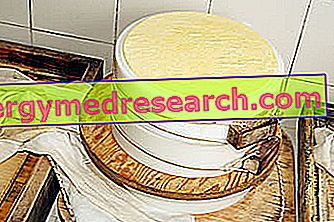
Meringues are pastry recipes of French origin.
They are rather light and very friable desserts, composed of a mixture of egg whites and white sugar; some contain acidic components such as lemon juice or tartrate cream (potassium acid).
There are various types of meringues, which differ in the quantity and type of sugar used and / or, above all, in the preparation method.
The first recipe associated with the birth of meringues is called "biscuits de sucre en neige" (snow sugar cookies), mentioned in the culinary text " Pasticier françois ", written in 1653 by François de la Varenne.
However, the meringue appears with its real name only in 1692, in the cookbook of François Massialot entitled "New instruction for women, liqueurs and fruits ".
According to Alain Rey, the etymological origin of the word "meringue" (meringue) is quite controversial and the likely solutions could be of various types:
The Polish origin "murzynka", which means "negretta", which originally meant a "chocolate meringue"; it is unlikely.
The German hypothesis "Meringel"; this solution should also be discarded, as the etymological origin is more likely to be reversed. It is Meringel that derives from Meringue, not the other way around.
The Latin hypothesis, from the vulgarized term "snack", or "evening snack", which would have arrived in France passing through the Netherlands. This solution must be "taken with pliers", since no trace of the term "meringue".
Alain Rey, in the "Oxford English Dictionary" cites as a possible origin of the name "Meringue" the noun "Meiringen" (in the Swiss-German language pronounced "Méringuè"). The term was born in a village in the Aare valley, upstream of Lake Brienz, in German-speaking Switzerland, where Gasparini, a Swiss confectioner from the 18th century, performed his art excellently.



